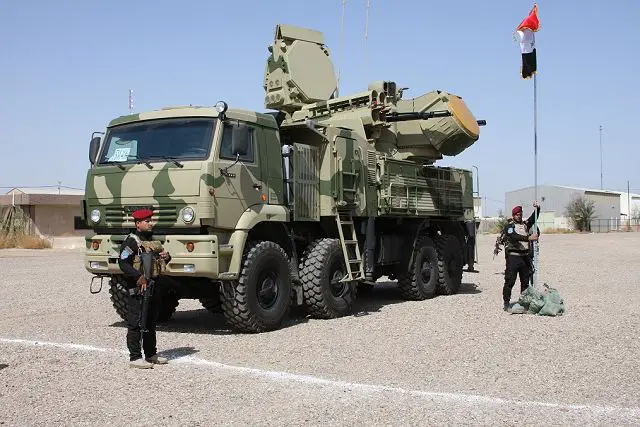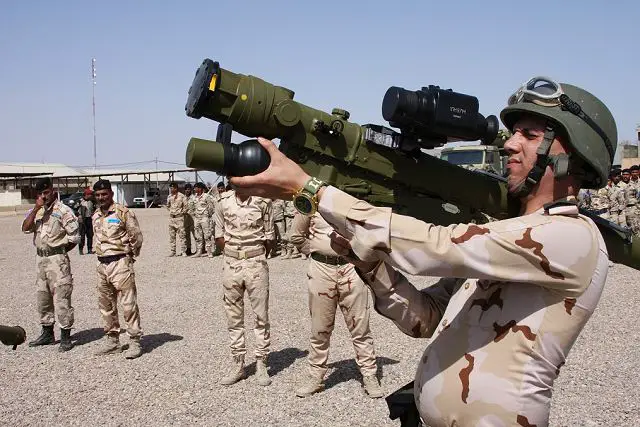Iraqi army now equipped with latest generation of air defense missile systems Pantsir-S1 and SA-24 0
| a | |||
Iraqi Army air defense missile system |
|||
| Wednesday, October 1, 2014 09:57 AM | |||
| Iraqi army now equipped with latest generation of air defense missile systems Pantsir-S1 and SA-24. | |||
The
official website of the Iraqi ministry of Defense has just released some
pictures with the delivery of Russian-made air defense missile systems
Pantsir-S1 and Man-Portable Air Defense System (MANPADS)
Igla-S SA-24 Grinch. Now, the Iraqi army is equipped
with new generation of air defense systems. |
|||
 Iraqi Army Pantsir-S1 is armed with two 2A38M 30mm automatic anti-aircraft guns developed from the two-barreled 30mm GSh-30 gun, coupled with twelve 57E6 surface-to-air missiles on launchers. |
|||
| In
October 203, Russia has announced the supply of weapons to Iraq under
contract signed in 2012. The contract, worth over $4 billion, accounts
for the supply of 48 Pantsir-S1 anti-aircraft missile gun systems and
40 helicopters Mi-35 and Mi-28NE. The latest pictures published by the Iraqi Ministry of Defense also show that Iraqi armed forces are now equipped with the latest generation of Russian-made MANPADS Igla-S (SA-24 Grinch). The Pantsir-S1 combines surface-to-air missiles and anti-aircraft dual auto-cannons capable of engaging aerial targets at medium- and short-range. The Pantsir-S1 is designed to work in tandem with long-range SAM systems like Russia’s S-400 to protect critical infrastructure against air strikes. |
|||
The
SA-24 Grinch (Russian name Igla-S 9K338) is the latest
generation of Russian-made man-portable air defense missile system. The launcher unit 9P522 fires the missile 9M342. The effectiveness of the 9M342 missile against air targets is attributed to the increase weight of the explosive in the missile's warhead and to the impact/proximity fuze enabling the missile to kill the target both in the event of a direct hit and when it passes at a distance of up to 1.5 m from the target. The target engagement has increased to 6 km compared with the 5.2 km of the Igla (SA-16 / SA-18) system. |
|||

























